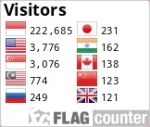Efektivitas Undang-Undang Cipta Kerja Dalam Pembangunan Hukum Indonesia
DOI:
https://doi.org/10.26623/julr.v5i1.5084Keywords:
Effectiveness, Development, Job Creation, LawAbstract
The purpose of this study is to determine the role of the rules governing the Job Creation Act which are effective in legal development in Indonesia. After the rules governing the Job Creation Law were passed, there were quite a lot of opposition given by people from various circles in Indonesia because they considered that many of the regulations contained therein were detrimental to some people and were made in a fairly fast time so that they created a negative impression in the community. In fact, the rules governing the Job Creation Law have a fairly good role in realizing effective legal development in Indonesia, therefore the author intends to raise this theme in order to find out the role of the rules governing the Job Creation Law in the development of effective Indonesian law. The urgency of this research is for the public to be able to see the phenomenon of the rules governing the Job Creation Act holistically, so that a positive side can be found from the formation of the rules governing the Job Creation Act. Furthermore, the research method that will be used in this research is the normative juridical research method. The novelty of this research lies in the analytical knife used, one of which refers to the theory of law and development from Mochtar Kusumaatmadja. The result of this research is that the rules governing the job creation law have effectiveness in the development of Indonesian law.
Tujuan dari penelitian ini adalah untuk mengetahui peran aturan yang mengatur UU Cipta Kerja yang efektif dalam pembangunan hukum di Indonesia. Setelah aturan yang mengatur UU Cipta Kerja disahkan, cukup banyak pertentangan yang diberikan oleh masyarakat dari berbagai kalangan di Indonesia karena menganggap banyak regulasi yang termuat didalamnya merugikan sebagian masyarakat dan dibuat dengan waktu yang cukup cepat sehingga menimbulkan kesan negatif dimasyarakat. Sebetulnya aturan yang mengatur UU Cipta Kerja memiliki peran yang cukup baik dalam merealisasikan pembangunan hukum yang efektif di Indonesia, oleh sebab itu penulis bermaksud untuk mengangkat tema ini guna mengetahui peran aturan yang mengatur UU Cipta Kerja dalam pembangunan hukum Indonesia yang efektif. Urgensi penelitian ini adalah agar masyarakat mampu melihat fenomena aturan yang mengatur UU Cipta Kerja secara holistik, Sehingga dapat ditemukan sisi positif dari pembetukan aturan yang mengatur UU Cipta Kerja. Selanjutnya, metode peneltian yang akan digunakan pada penelitian ini adalah metode penelitian yuridis normatif. Kebaharuan pada penelitian ini terletak pada pisau analisis yang digunakan yang salah satunya merujuk pada teori hukum dan pembangunan dari Mochtar Kusumaatmadja. Hasil penelitian kali ini adalah aturan yang mengatur UU Cipta Kerja memiliki efektivitas dalam pembangunan hukum Indonesia.
Kata kunci: Cipta Kerja; Efektivitas; Hukum; Pembangunan
References
Aryani, Christina. Reformulasi Sistem Pembentukan Peraturan Perundang-Undangan Melalui Penerapan Omnibus Law. Jurnal USM Law Review 4, no. 1 (2021): 27. https://doi.org/10.26623/julr.v4i1.3194.
Busroh, Firman Freaddy. Konseptualisasi Omnibus Law Dalam Menyelesaikan Permasalahan Regulasi Pertanahan. Arena Hukum 10, no. 2 (2017): 227 50. https://doi.org/10.21776/ub.arenahukum.2017.01002.4.
Hidayat, Arif, and Zaenal Arifin. Politik Hukum Legislasi Sebagai Socio-Equilibrium Di Indonesia. Jurnal Ius Constituendum 4, no. 2 (2019): 147 59. https://doi.org/10.26623/jic.v4i2.1654.
Hidayatullah, Syarif, and Ditha Wiradiputra. Menimbang Efektivitas Undang-Undang Cipta Kerja Terhadap Peningkatan Investasi Asing. Surya Kencana Satu : Dinamika Masalah Hukum Dan Keadilan 12, no. 2 (2021): 112 25.
Kementerian Koordinator Bidang Perekonomian Republik Indonesia. Omnibus Law Cipta Lapangan Kerja. n.d.
Kurniawan, I Gede Agus. Putusan Mahkamah Konstitusi Terhadap Undang-Undang Cipta Kerja Dalam Perspektif Filsafat Utilitarianisme. Jurnal USM Law Review 5, no. 91 (2020): 282 98. https://doi.org/http://dx.doi.org/10.26623/julr.v5i1.4941.
Matompo, Osgar Sahim, and Wafda Vivid Izziyana. Konsep Omnibus Law Dan Permasalahan RUU Cipta Kerja. Jurnal Ilmu Hukum Rechstaat Nieuw 5, no. 1 (2020): 22 29.
Mayasari, Ima. Kebijakan Reformasi Regulasi Melalui Implementasi Omnibus Law Di Indonesia. Rechts Vinding 9, no. April (2020): 1 15.
Mochtar Kusumaatmadja. Konsep-Konsep Hukum Dalam Pembangunan. Bandung: Alumni, 2006.
Naskah Akademis RUU Tentang Cipta Kerja Portal Resmi UU Cipta Kerja Infromasi Seputar UU Cipta Kerja, n.d.
Neununy, Dolfries J. Urgensi Omnibus Law (Undang-Undang Cipta Kerja) Terhadap Hak Masyarakat Adat Di Wilayah Pesisir. Balobe Law Journal 1, no. 2 (2021): 119. https://doi.org/10.47268/balobe.v1i2.653.
Prabowo, Adhi Setyo, Andhika Nugraha Triputra, Yoyok Junaidi, and Didik Endro Purwoleksono. Politik Hukum Omnibus Law Di Indonesia. Pamator 13, no. 1 (2020). https://doi.org/DOI: doi.org/10.21107/pamator.v13i1.6923.
Rongiyati, Sulasi. Menata Regulasi Pemberdayaan UMKM Melalui Omnibus Law. Info Singkat 11, no. November 2019 (2020).
Simatupang, Taufik H. Pemihakan Dan Pemilihan Atas Penelitian Hukum Doktrinal Dan Non Doktrinal. Forum Ilmiah 8, no. 1 (2011): 67 71.
Soekanto, Soerjono. Pengantar Penelitian Hukum. Jakarta: UII Press, 1986.
Sudarmanto, Kukuh, Budi Suryanto, Muhammad Junaidi, and Bambang Sadono. Implikasi Undang-Undang Nomor 11 Tahun 2020 Tentang Cipta Kerja Terhadap Pembentukan Produk Hukum Daerah. Jurnal USM Law Review 4, no. 23 (2021): 702 13. https://doi.org/http://dx.doi.org/10.26623/julr.v4i2.4191.
Sujendro, Edy. Gagasan Pengaturan Kodifikasi Dan Unifikasi Peraturan Perubahan Dan Peraturan Omnibus Law. Jurnal USM Law Review 3, no. 2 (2020): 385. https://doi.org/10.26623/julr.v3i2.2727.
Downloads
Additional Files
Published
Issue
Section
License
The journal holds the copyright for each article published with work licensed simultaneously under a Creative Commons Attribution 4.0 International License, which allows others to share the work with an acknowledgment of the authorship and early publication of the work in this journal.










